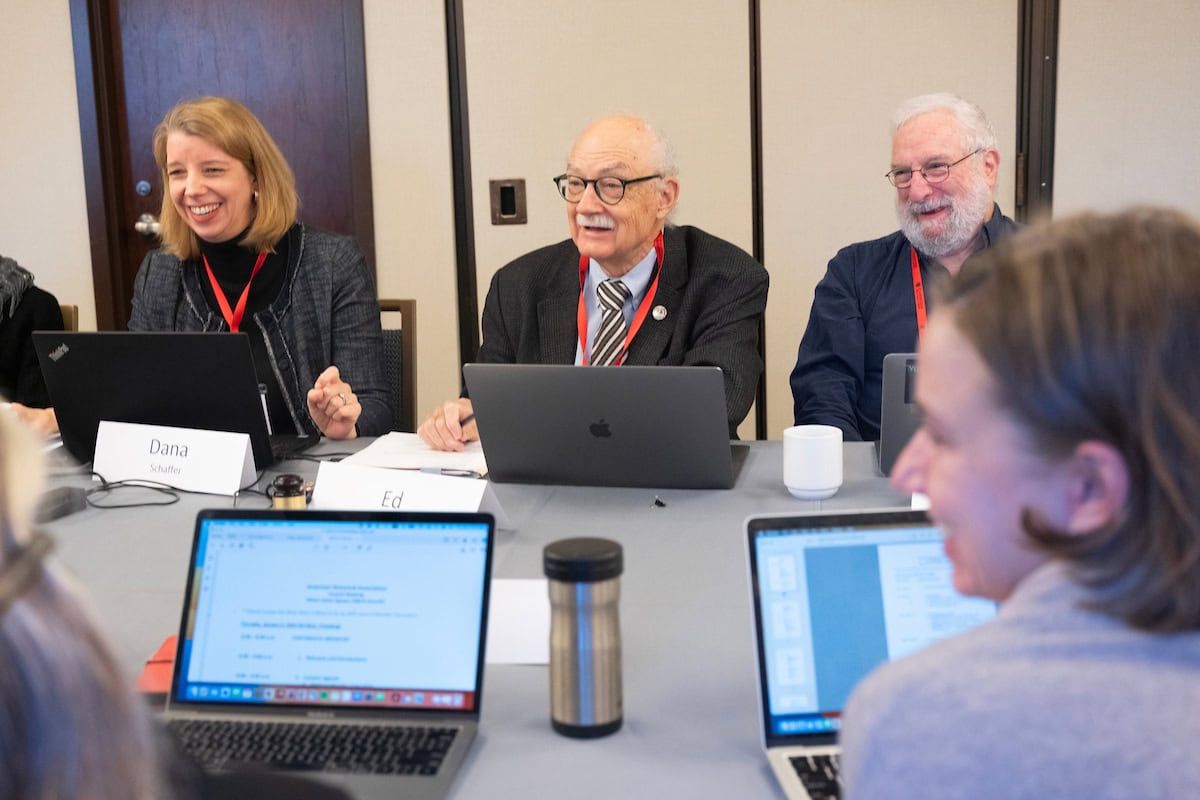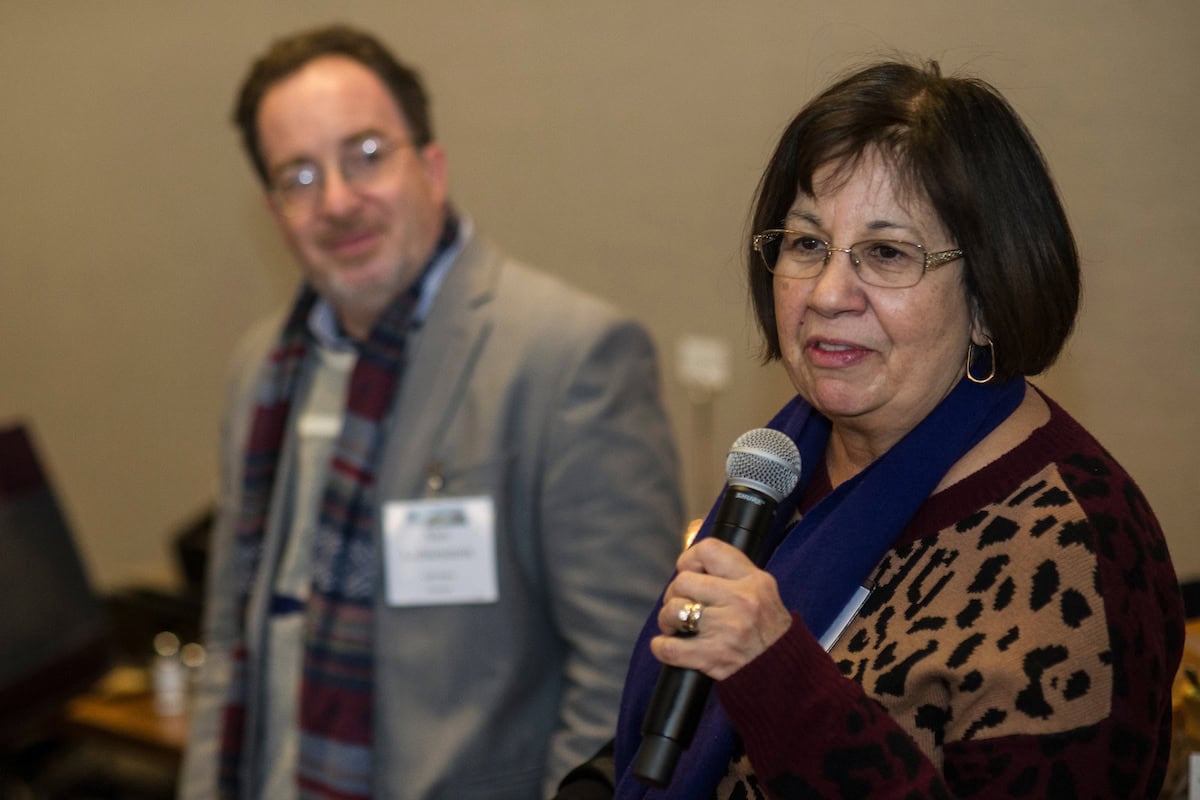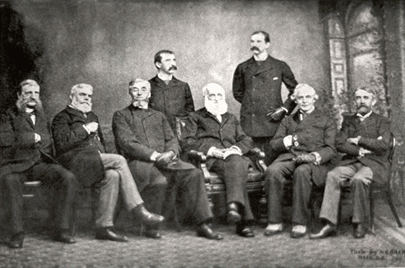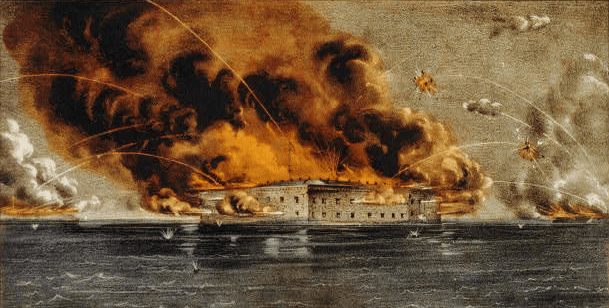AHA Addresses & News
Presidential Addresses
Since the Association was founded in 1884, the Association’s presidents have addressed the annual meeting on a topic of interest or concern to the profession. Since there is no set topic, the subjects treated have ranged widely from the role of history in society to the best practices of historians as writers, teachers, and social scientists. Each in their unique way represents a microcosm of the interests and concerns of the profession in various stages of its development over the past century.

Year in Review
The AHA Year in Review provides an overview of the AHA's activities over the course of the year, highlighting efforts in key areas of the AHA's mission, such as leadership, advocacy, and building community. The Year in Review summarizes the activities and accomplishments of the AHA's publications, annual meeting and other conferences, public outreach, and more.

Annual Reports
Each year the American Historical Association produces an annual report that includes reports from the editor of the American Historical Review, officers in the different divisions, and members of the different committees. Also included are the decisions of Council, minutes and resolutions from the business meeting, the association’s financial report, and more.
AHA Committee Reports
August 20, 2020
Final Report on Extending the Reach of Scholarly Society Work to HBCU Faculty
The American Historical Association (AHA) and the American Philosophical Association (APA), supported by a grant from the Andrew W. Mellon…

January 1, 2016
Follow-Up Report of the Two-Year College Faculty Task Force

January 1, 2016
AHA Ad Hoc Committee on Contingent Faculty: Final Report

March 1, 2015
LGBTQ Task Force Final Report

June 1, 2012
Report of the Two-Year College Faculty Task Force

June 5, 2011
Task Force on Disability Final Report
Historical Reports, 2000–09
Final Report and Recommendations of the Working Group on the Future of the AHA (2008)
Internationalizing Student Learning Outcomes in History (2005)
Retrieving the Master's Degree from the Dustbin of History (2005)
The Status of Women in the Historical Profession (2005)
Public History, Public Historians, and the American Historical Association (2004)
Report on the Status and Hiring of Women and Minority Historians in Academia (2004)
The Education of Historians for the Twenty-first Century (2003)
Committee on Lesbian and Gay History Survey on LGBTQ History Careers (2001).
Historical Reports, 1950–99
Who Is Teaching in US College Classrooms? (1999)
Report on the Status and Hiring of Women and Minority Historians in Academia (1996)
Redefining Historical Scholarship (1993)
Report on the Lesbian and Gay Historians Survey (1993)
Committee on Women Historians, 1970–90: A Twenty-Year Report (1991)
Committee on Women Historians’ 1980 Summary Report (1980)
Report of the AHA Committee on the Rights of Historians (1974)
The AHA Review Board: Final Report (1973)
The AHA Review Board: A Preliminary Report (1972)
Historical Reports, 1898–1949
AHA Archival Documents

December 28, 1934
Letter from President Franklin D. Roosevelt to the AHA

September 9, 1884
First Meeting of the American Historical Association
Primary Source Collections

GI Roundtable Series
The GI roundtable series was prepared under the direction of the US Army’s Division of Information and Education between 1943 and 1945 “to increase the effectiveness of the soldiers and officers as fighters during the war and as citizens after the war.” The accent in the booklets is on what the postwar world would look like, and reassuring servicemen that they would have a place in postwar America. These booklets provide an intriguing indicator that the postwar world was being seriously considered and developed fairly early in the military campaign.

Sixteen Months to Sumter
Providing access to hundreds of newspaper editorials detailing the shifting tides of emotion and opinion in the 16 months leading to southern secession and the American Civil War, this collection is intended primarily as a teaching resource, to enrich students’ exploration and understanding of the period and assist history teachers by expanding the available primary sources.
